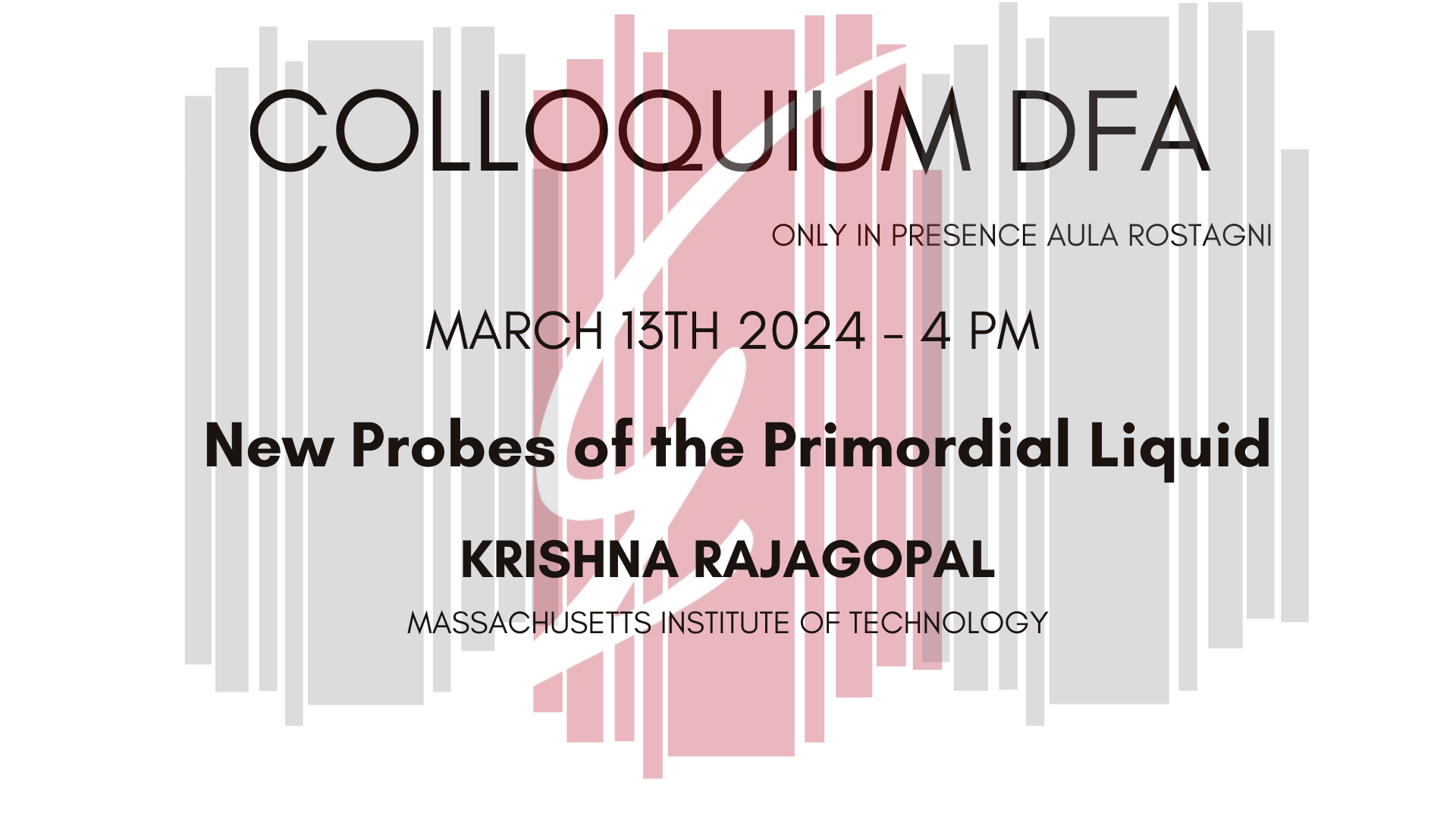New Probes of the Primordial Liquid
by
1/1-1 - Aula "A. Rostagni"
Dipartimento di Fisica e Astronomia - Edificio Marzolo

Speaker: Krishna Rajagopal
Affiliation: Massachusetts Institute of Technology
Date: March 13th, at 4 PM
Where: Only in presence in Aula Rostagni
ABSTRACT: Heavy ion collisions reproduce droplets of the trillions-of-degrees-hot liquid that filled the microseconds-old universe, called quark-gluon plasma (QGP). Over the past twenty years, data obtained via recreating this primordial fluid have shown that it is the most liquid-liquid in the universe, making it the first complex matter to form as well as the source of all protons and neutrons. After a look at what we have learned about the formation and properties of this original liquid from heavy ion collisions, I will focus on the questions that motivate experimental measurements coming soon, in particular those that can be answered via the use of jets as probes. (How) can we use jets to see the inner workings of QGP, namely the quarks and gluons that must become visible in the strongly coupled liquid if it is probed with high resolution? (How) can we see the wakes that jets excite in droplets of primordial liquid? Jets in heavy ion collisions at the LHC encode answers to questions governed by very different dynamics of the primordial liquid arising at different length scales, making it imperative to define/design new observables and strategies for teasing apart the answers.
CV: Prof. Krishna Rajagopal is a theoretical physicist who investigates the behavior of the very hot quark soup that filled the universe for the first microseconds after the Big Bang and that is recreated today in high energy nuclear collisions at CERN and of the cold quark soup that may be found in the center of the heaviest neutron stars. His work links nuclear and particle physics, condensed matter physics, astrophysics, and string theory. He obtained his Ph.D. at Princeton University. After three years at Harvard as a Junior Fellow and one year at Caltech as a Fairchild Fellow, he joined the MIT faculty, where he has won awards for both teaching and advising from his department and from MIT. He became the Associate Head of the Department of Physics in 2009, served as the Chair of the MIT faculty from 2015 to 2017, and as MIT’s Dean for Digital Learning from 2017 to 2021.
